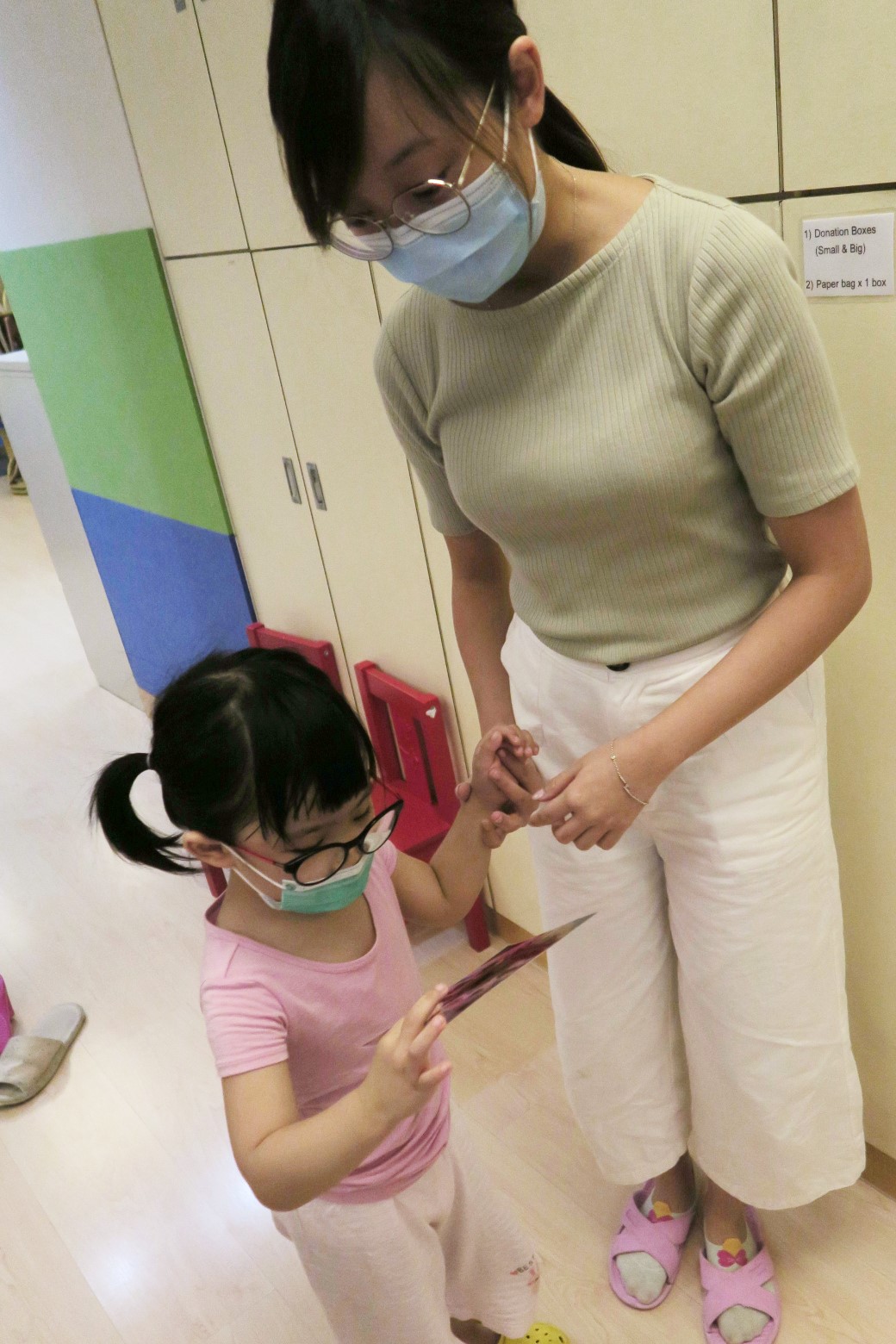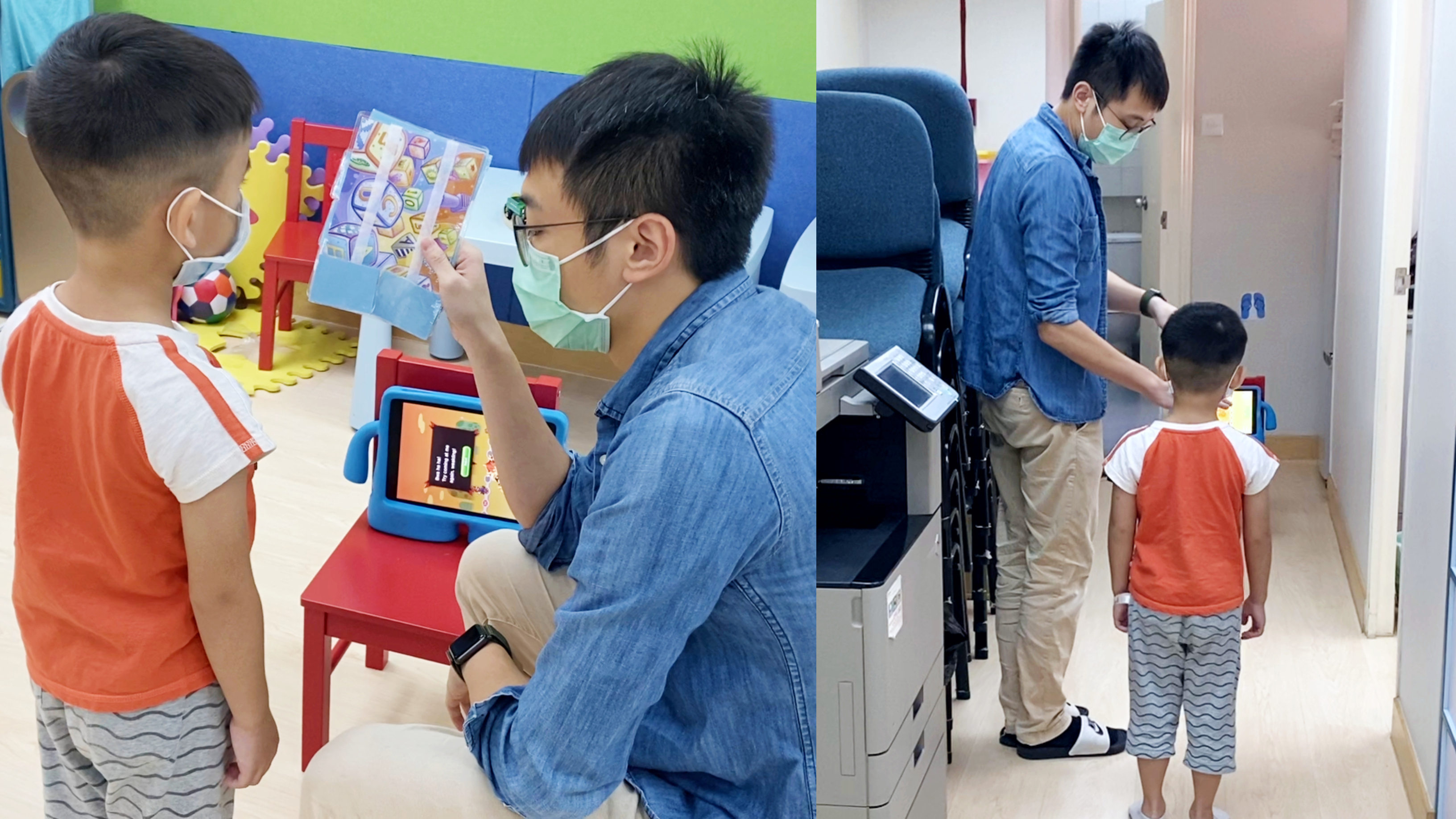Autism Partnership Foundation
Charitable Organization
Charitable Organization
Together We Create a Better World for People with Autism
“Separation and reunion”
Wian would cry heavily every time when he separated or reunited with his mother, which made his mother feel distressed. This would affect his learning as well. To teach Wian to stay calm, our therapist pretended to be Wian’s mother by using her photo. The therapist would reward Wian with chocolates if he could stay calm. We also invited Wian’s mother to appear intermittently during the training. After repeated practices, Wian has gradually been able to keep calm when being separated from or reunited with his mother. As a result, he became more focused on learning. At the end of the training, Wian could remain calm and gave a big hug to his mother after class!
“Say goodbye to diapers”
It is not easy to teach children with autism to use the toilet. 5-year-old Wai had weak toilet awareness. Our therapist first trained Wai to sit on the toilet in order to enhance her awareness of going to the toilet. When Wai used the toilet successfully, the therapist immediately rewarded her with cookies. After a period of practice, Wai successfully used the toilet more often and became aware of her behaviours. She would even say “I had a wee-wee!” and get a cookie by herself after using the toilet.

“You’ve followed me nicely!”
It can be a big challenge for a parent to go out with two children. When Pok’s mother went out with Pok and his little sister, Pok always ran away which made her very worried.
To prevent Pok running away on streets, our therapist used stickers and his favourite tablet as rewards to train him to follow adults while walking together. Pok could only follow his therapist for a few seconds at first. The therapist therefore trained him step by step, starting with a very short distance, then gradually increased the walking distance. After progressive training, Pok now can follow adults to walk along the corridor stably!

“Positive speaking”
Many children with autism say negative words to get people’s attention, Ting is one of them. He often said “I don’t like you!” or “I don’t play with you!” It was perceived as impolite or rude, which affected his social development.
Our therapists taught Ting how to speak positively and politely through playing different social games with him. After the treatment, Ting can now take the initiative to invite others to play together politely by saying, “Would you play with me?” He would even praise his therapist for winning a game and say, “You’re awesome!”
“Learn to listen and respond to questions”
One day, our therapist and Lok were reading a book together. Lok was looking at a picture attentively. The therapist pointed to a fruit and asked him, “What’s this?” Lok answered clearly, “A watermelon!”
Before receiving our treatment, Lok often blurted out what he saw without listening to the questions or instructions. After practices, Lok has been able to listen to questions carefully and respond appropriately. Apart from names of different objects, Lok has also learnt how to answer “Who” and “Where” questions.
“Let’s classify objects!”
Ka often repeated the names of toys and rarely communicated with others at the beginning of the treatment. Our therapists shared that basic concepts such as classification would help children to understand a conversation and ask questions. We therefore taught Ka to group items according to their characteristics. Through repeated practices, Ka has learnt categories such as daily necessities and transportation. He can also name the categories correctly while classifying!
Wian, Wai, Pok, Ting, Lok and Ka were invited to present their experience in receiving ABA services with Autism Partnership Foundation (operating in Hong Kong) (APF, HK). Wian, Wai, Pok, Ting, Lok and Ka are past beneficiaries of APF, HK.